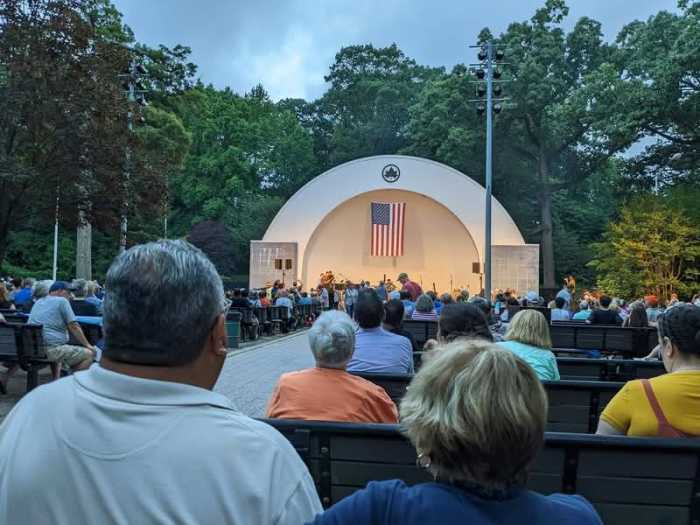By Gina Martinez
Queensborough Community College’s Kupferberg Holocaust Resource Center and Archives held an event last Friday where World War II veteran Rick Carrier spoke to students about being the first American to discover the Buchenwald concentration camp.
Carrier, who turns 90 this month, was a lively speaker who recanted tales from his childhood and the war without missing a beat.
Even when talking about storming the beaches of Normandy on D-Day he was able to infuse his humor and charm into the stories, bringing a sense of humanity to the horrors of wartime. His biggest achievement and the reason the center asked him to speak was to tell the story of how he and his fellow soldiers helped liberate the prisoners of Germany’s largest concentration camp, Buchenwald. Carrier, who was just 20, found the camp while looking for a supply dump.
Carrier spoke in front of QCC students who are taking a trip to Salzburg, Austria as a part of the Salzburg Global Seminar in April.
According to the seminar, the purpose of this program is to provide students with an intensive international experience, exploring issues of global concern and viewing these issues from different perspectives.
Since students participating in the seminar will visit Dachau concentration camp, the session provided some context and understanding of the liberation that took place in various camps.
Marisa Berman, assistant director of the Kupferberg center talked about why Carrier was a dream guest speaker.
“One of the most important things we can offer students and the community is getting firsthand testimony from survivors,” she said. “It makes the story much more compelling and makes students and visitors more empathetic. It’s a totally different experience for the students than just having me tell the story. It really helps them get a better sense of what happened because it’s putting a face to the tragedy.”
Carrier enjoys speaking to the younger generation and causing an impact.
“They remember it because I tell it in such a way they’ll never forget it,” he said. “I tell the story from a very personal point of view, what I felt, so the emotions come through. I was 18 when the war started and a lot of the kids I speak to are around that age. They visualize themselves at my age going through what I went through.”
Berman hopes that firsthand accounts remind students of the relevance and lasting impact of genocide.
“Talking about genocide is important because sometimes when we talk to students about events like the Holocaust, which happened over 70 years ago, it’s easy to write it off and think times were different, but when we can show things happening in the ’90s and this millennium and decade they realize how important it is,” Berman said.


































